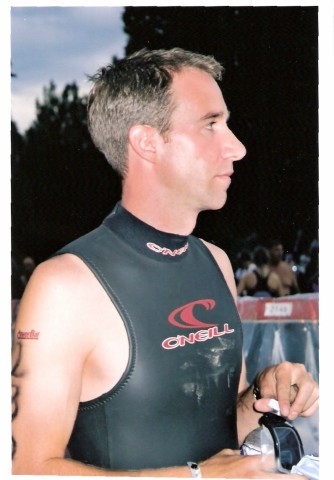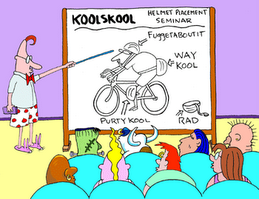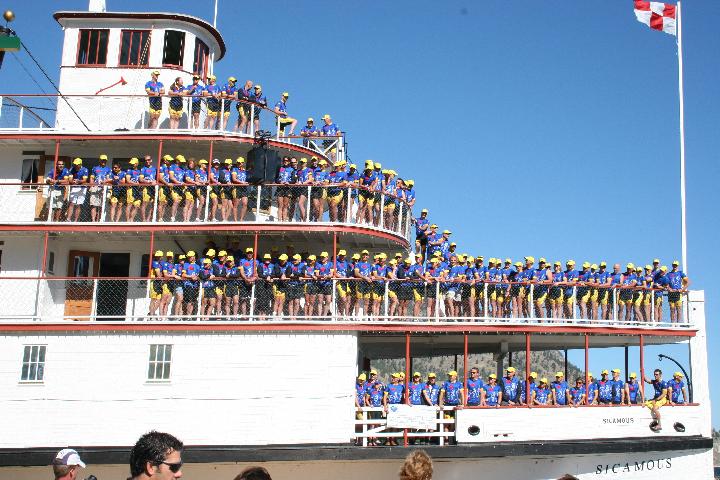I feel like a cocooned butterfly right now. Mentally I am ready to jump into the fray and get a hard speed session going tonight, but physically, my foot is still hurting, my calves are still a little tight, and I have a nagging pain in my butt.
With restlessness comes bad sleeping, which is okay because the Oilers/San Jose hockey game was on last night and I managed to have the energy to stay up until the triple-overtime finale, all while surfing the 'net for information on bike fitting and chatting with some guy from the Santa Barbara Triathlon Club about the best place to ship my bike down for my vacation later this month.
I am a self-professed "tri-geek". I wear that label with a secret bit of pride (if you have to be a geek, mind as well go for it 100%). If I can't do it, I'll read about it any way I can.
There are some great books out there that I have found got me going. I used to teach my running clinic participants that, if you want to improve your running, learn about it. I think the secret to long-lasting running and triathlon improvement is through learning. You can't blindly do your training without having at least some rudimentary idea of what you are accomplishing with each training run. Don't just trust the coach or instructor, but learn why he/she follows this philosophy and how it works.
I think that the passion you bring to the sport helps keep you motivated in this way. I love reading about baseball players who know statistics and the historical significance of teams and players. Because I love baseball, it helps me relate when I hear of an athlete who not only is one of the best at the game, but also cares about the lore behind it.
Reading books about running helped me become a better and more complete runner. We used to sit around the Running Room, when I was the manager, and break out Tim Noakes "Lore of Running" encyclopedia and compare the training programs in it. Yes, we're talking the next level of "geekitude" here. After a while, it became the Jack Daniels Running Formula. Aside from the pure comedy involved in that title, this book let us compare interval times to relative race times. Thus, my training partners Kenji, or Paul, or whomever would say "you should be able to do a X:XX marathon with those kind of intervals." And we actually would believe that. Of course, on paper, Detroit should win the Stanley Cup, so that shows you how much the "theory" means sometimes.
But statistics, miles splits, heart rate data, transition times, training plans, formulas, average caloric intake/hour, body fat measurements, weight loss after a workout, etc. are all part of sport-jock discussion that gives us new and interesting ways to rehash the same old stuff. I can't count how many times I have bought a new book and read the same information from a different author, just to see the advice given from a different perspective. I suppose that is what keeps our breakfast post-run discussions so lively.
So, I have to go for a run tonight... If I don't, I fear I'll be up again until 1am looking up information on power cranks again and contemplating an online order for a disc wheel... Or I'll reread the Triathlete Magazine again (for the fourth time this week).
It's dangerous to keep me caged up!
Thursday, May 11, 2006
Subscribe to:
Post Comments (Atom)




No comments:
Post a Comment